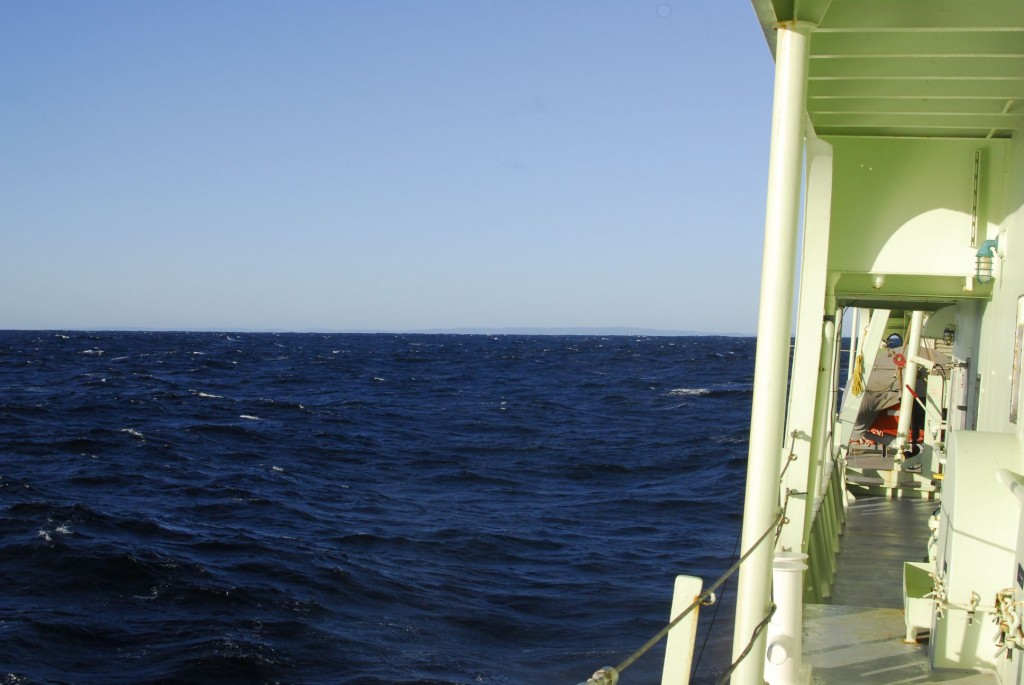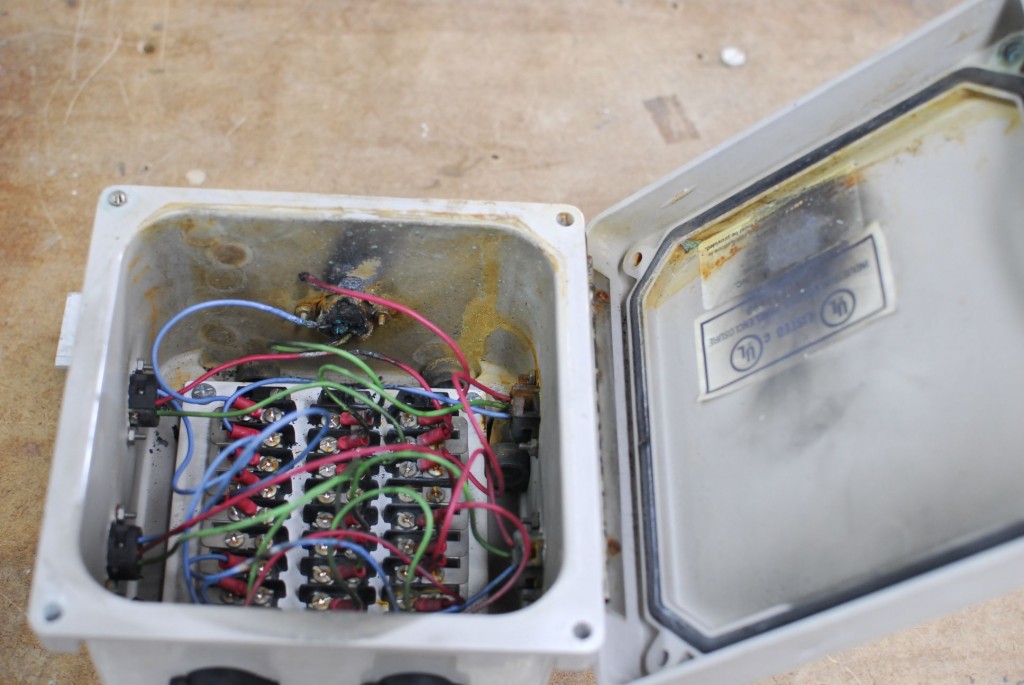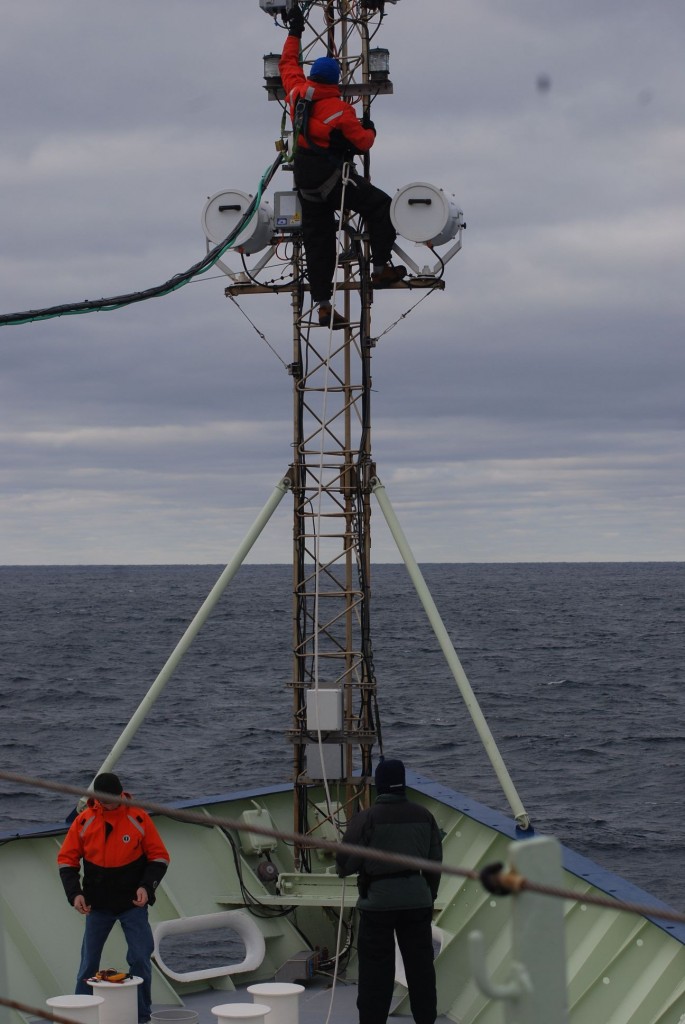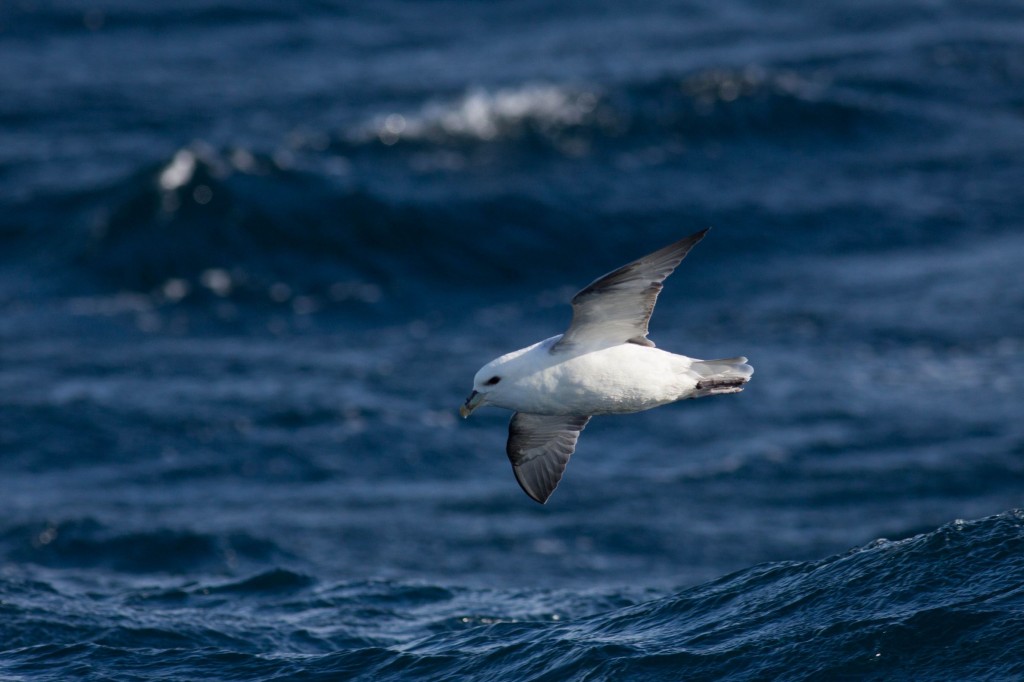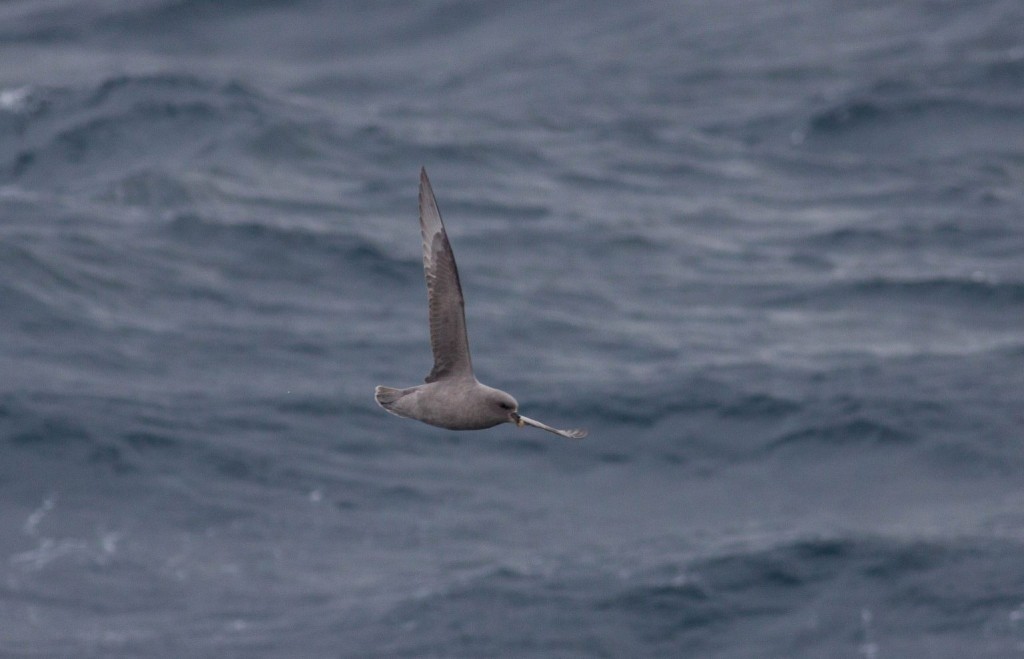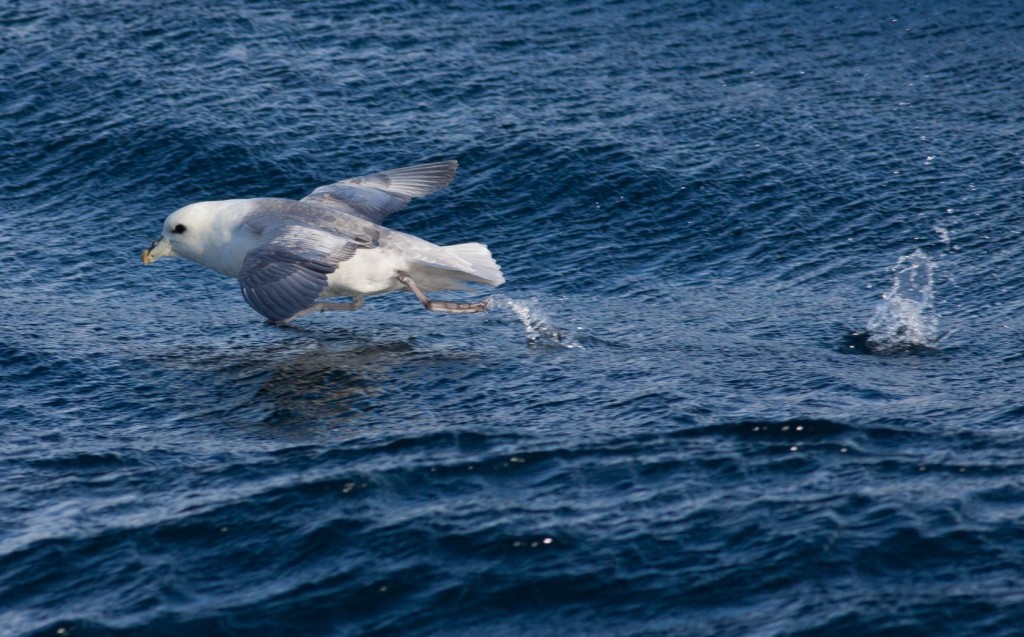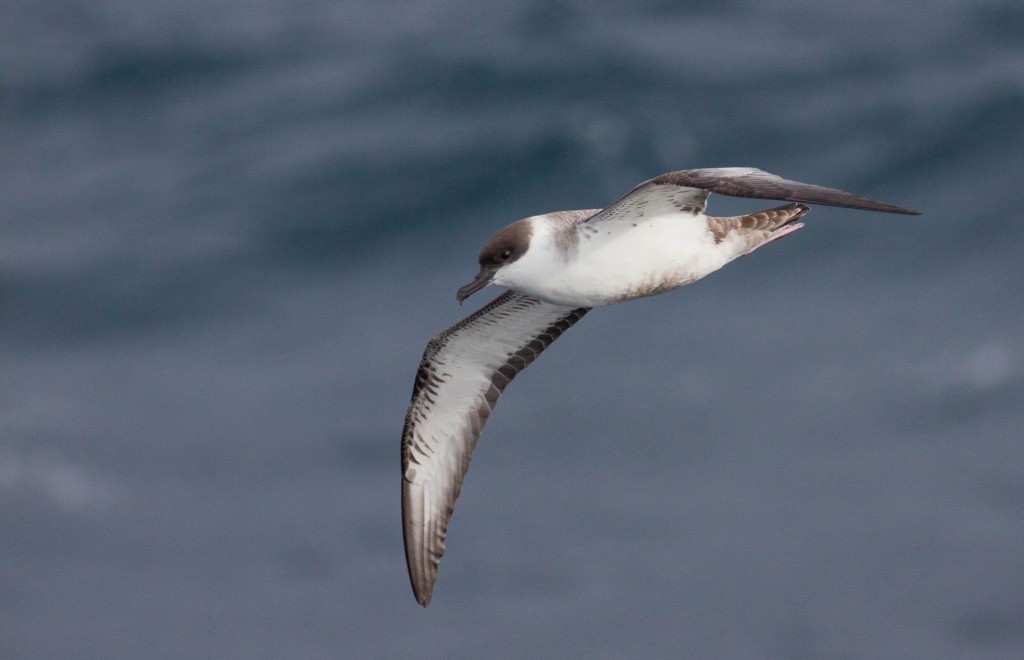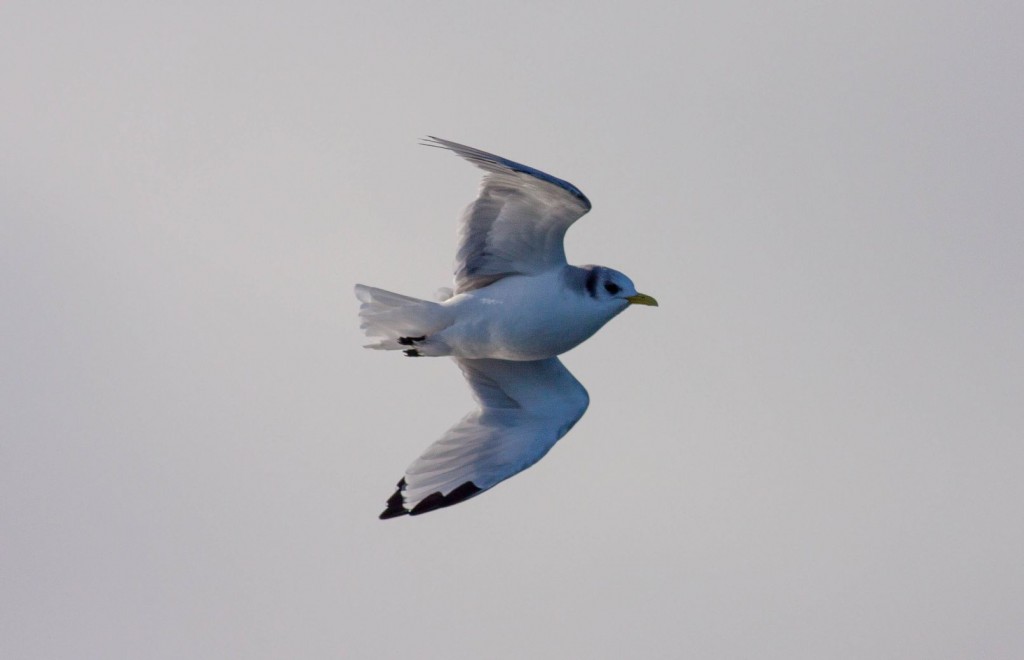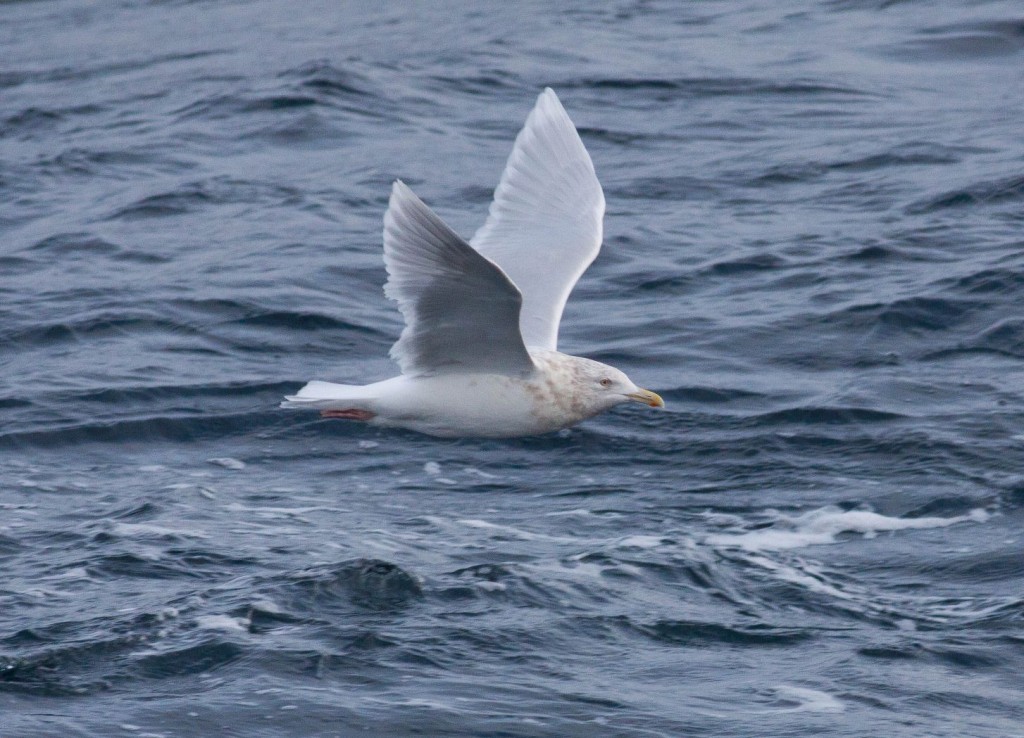After spending time through another storm at longitude 50W and latitude 52N, we navigated west and entered the Strait of Belle Isle to find calmer waters behind Newfoundland in the Gulf of St Lawrence. Although still far away in distance, it is always a heartwarming feeling to see some land after some long periods in the open ocean.
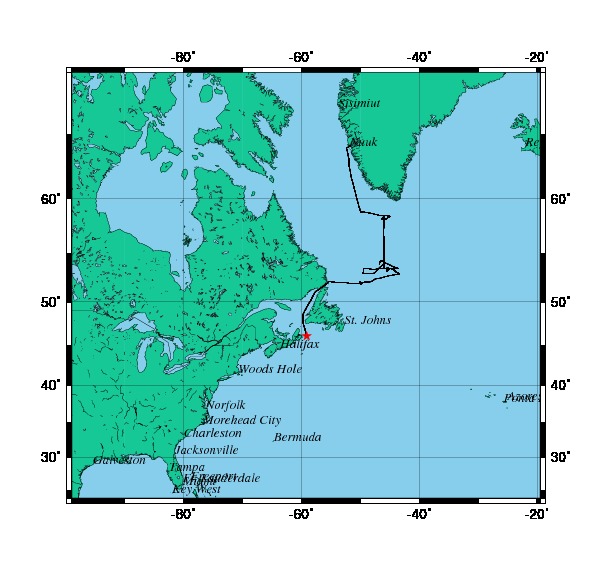
Our cruise track since October 9th and our current location indicated by the red star. We will arrive in Woods Hole, MA on November 14th.
During this calmer period, my colleague Byron and I were able to repair the power issues to some of our flux instruments at the ship’s foremast. The issues originated most likely from a big wave slightly damaging the box where the main power supply is distributed. Salt water got inside the box and created lovely shorts. After cleaning it up and putting the box back in place, most of the instruments came back to life except two that will remain off-service for the rest of the project. But we have enough instruments to keep on doing proper flux measurements for the rest of the project. We have about a week left in the project and hope to catch one more weather event prior heading back to Woods Hole, MA.
Compare to rock climbing, going up the tower is pretty easy but I have to say I had never done it with air temperatures oscillating around 0degC and wind blowing at 10m/s. With the proper gear I stayed warm enough in the foremast. The downside is that my hands were getting cold quickly when I had to remove my gloves to put some tiny bolts back on. During my first ascent of the tower, I also experienced for the first time of my life the phenomenon of trembling legs, also known to my fellow climbers as “sewing machine legs” or “Elvis syndrome”. When it started, I recall saying to myself “hold on here what is happening to me? I am not scared by heights and I am not an ice cube yet so where are these humiliating shakes coming from?” For a moment, I indeed felt like Elvis Presley who used to say “Rock and roll music, if you like it, if you feel it, you can’t help but move to it. That’s what happens to me. I can’t help it.” In fact this happened because of my weird position in the mast and my shoe soles being a bit too thin for this type of climbing. Most of my weight was on the ball of my feet with my heel lifted and this put a lot of strain on my calf muscles which got tired and decided to go Rock ‘n’ Roll. Lesson learned! Afterward, I used better shoes for my subsequent climbs and paid attention to my resting position.
When it’s not about big waves or repairs, it’s about marine animals. I did not see as many animals on this cruise as in the Southern Ocean but we did however encounter a pod of whales and various seabirds. And when it’s about birds, you want to talk to Robin Pascal. I have enjoyed conversing with him to learn the names of birds flying around us. When the weather is descent, it is very pleasant to watch those birds fly peacefully and effortlessly around the ship. After spending some time in this part of the ocean and going through some pretty rough weather, it is also quite fascinating to think they can spend their entire life at sea except they reproduce and go back on land. One of the most common birds we have seen around is the Northern Fulmar. Those birds are quite remarkable. They can drink ocean water and have a gland to remove salt from their bodies (how nice would it be if we could do that?); their nasal passage is a sophisticated smell sensor to help find prey at sea; and if they get bothered by avian predators, they can project a sort of stomach oil to somehow disable them.
To share the beauty of those sea creatures with you, I’ll end this blog post with some beautiful photos taken by Robin with his big telephoto lens.
